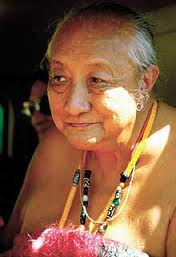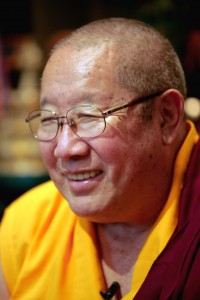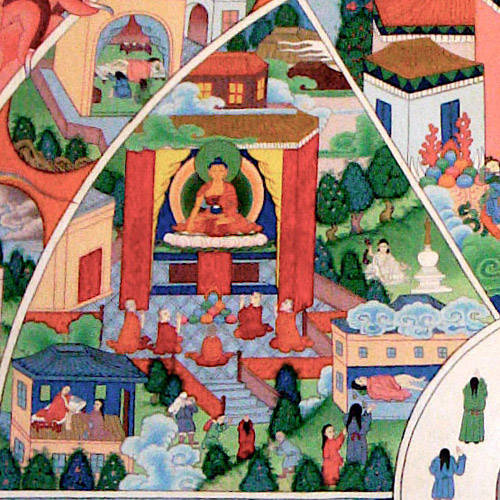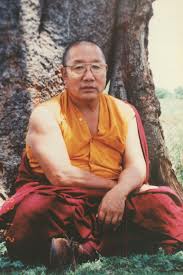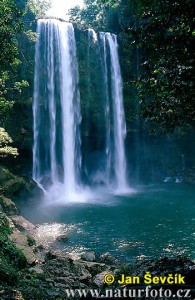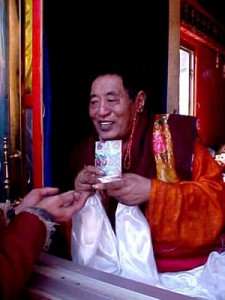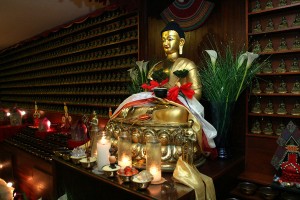
The following is respectfully quoted from “Treasury of Precious Qualities” a commentary by Longchen Yeshe Dorje, Kangyur Rinpoche:
SAMSARIC EXISTENCE
For ages we have lingered in samsara, unaware of its defects, believing that this is a wholesome, beneficial place. And yet it is a state in which suffering and its causes abound and where the qualities of liberation languish and wither. It is a desolate wilderness in which many times in the past our bodies and minds have burned in agony and have endured pains of mutilation and decapitation. Moreover, latent within us, there are still many karmic seeds that will provoke such sufferings in the future. Human beings generally do not see this and are thus not only without regret for their condition but actually crave the transient and futile pleasures of the higher realms. Totally unaware that they should engage in virtue and refrain from evil, they pass their lives sunk in negativity. Theirs is what is called a “mere human existence.” By their negative actions of thought and deed, they destroy themselves and render meaningless the freedoms and advantages of their human condition. From their lofty position in samsara they plunge again into evil circumstances. Thus they wander in the three lower realms, in heavens of insensate gods without perception, or in barbarous regions (where the Dharma is not heard); they are born physically or mentally handicapped, have wrong views, and take birth in places where no Buddha has appeared.
EIGHT CONDITIONS IN WHICH THERE IS NO FREEDOM TO PRACTICE DHARMA
On the ground of burning iron, without a single moment of relief, beings are slain again and again by the henchmen of the Lord of Death, who brandish frightful weapons, swords, and hammers and inflict terrible pain. Until their evil karma has been exhausted, these beings in hell are unable to die, and, due to karmic effects resembling the cause–in other words, their compulsive tendency to negativity–they are caught in a web of evil karma inspired by hatred, and their infernal life span is measureless.
Pretas generally are completely deprived of food and drink; they do not find even the slightest filthy fragment of pus, blood, or excrement to eat. No need to say, then, that they are tormented by hunger and thirst. The cooling effect of the moon in summer and the warming effect of of the sun in winter are all reversed; rain and hail are misperceived as lightening and thunderbolts; and the rivers are filled with pus and blood. For pretas that are afflicted outwardly, streams and orchards dry up as soon as they look at them. Those afflicted inwardly have heads that are not in proportion to their bodies: their mouths are as small as the eye of a needle, while their bellies are the size of an entire country. If they swallow a little food and drink, it scorches their intestines and they suffer intolerable pain. Their lifespan is uncertain, depending on the strength of obscurations due to former avarice. Generally speaking one of their days is equal to a month by human reckoning, and they live for five hundred of their own years.
In the depths of the great oceans, fish and sea monsters devour each other, the bigger ones gulping down the smaller. Animals scattered over the surface of the earth, wild and unclaimed, are the prey of hunters with their nets, traps, their poisoned arrows and their snare, and they die cruel deaths. Animals domesticated by man are slaves to their masters. They are tamed and subjugated with saddles, bridles, and nose-ropes. Their masters ride on them, tether them, and place burdens on their backs. They herd and castrate them, shear off their hair, and bleed them while still alive. And through such treatment, animals are reduced to every extremity of suffering. Being without intelligence, they cannot recite even a single mani. When beings are born in such a condition, they are helpless, and we are told the lifespan of animals ranges from the momentary existence of insects to that of nagas and such-like that can live for a kalpa.
Since the unwavering action that sustains their life-principle is extremely protracted, and their lives are therefore very long, lasting twenty intermediate kalpas, the gods of the formless realm have no occasion to cultivate a sense of disgust for samsara and a desire to leave it. Moreover, the consciousness of the insensate gods, who are without perception, does not operate throughout the duration of their existence. They are therefore deprived of any basis for hearing and reflecting on the Dharma. Their abode is far removed from that of the gods of the fourth samadhi, just as a solitary place is remote from a populous city. These divine beings have no notion of Dharma, and thus when their thoughts begin to stir at the end of their existence, they conceive the false view that there is no path to liberation, and as a consequence they fall to the lower realms. To be born in these states is to be deprived of the freedom to practice Dharma.
The inhabitants of so-called barbarous lands do indeed have a human aspect, walking upright on their two feet. But they live practically like animals are are utterly ignorant of the Doctrine. Virtue is foreign to their minds and they are given over to negativity. They live immersed in various kinds of evil activity such as wounding others with poisoned arrows, and even making it a tenet of their religion. They wander in the undergrowth of false views and, worse than animals, turn upside down the moral principles of what is to be adopted and what is to be rejected. The way of liberation is unknown to them.
Those whose faculties are impaired, who lack, for instance, the ability to speak, and especially those who are mentally handicapped, may encounter a spiritual guide who is on the supreme level of accomplishment, and they may even hear his or her teaching. But what is said is unintelligible to them, like the booming of an echo. The sense of the teaching is lost to them, and they fail to grasp the vital point of what actions are to be adopted and what should be forsaken. Thus their fortune is marred and they suffer greatly in this desolate and fearful wasteland of samsara.
To be born in samsara through the effect of karma and defilements is like being adrift upon a vast ocean, unfathomable and shoreless. To obtain a human form is like having a great boat with which to cross this ocean and reach the island of liberation. But though people may possess all their faculties, and though they may have intelligence, like a sail to propel them in the direction of freedom, this excellent support is wasted when the mind is clouded by false beliefs. As a result, such people fail to enter the Dharma and do not undertake the path to liberation so pleasing to the Buddha, who appeared in the world to set it forth. Denying the karmic principle of cause and effect, and claiming that there is no afterlife and so forth, they are beset by demons hindering them from the path of liberation. They fall under their power and lose their freedom.
To take human birth during a dark kalpa is once again of no avail, for these are periods when the light of Dharma does not shine, when no Buddhas appear in the world from the time of its formation until its destruction. To take such a birth is to be like a man who has fallen into a pitch-dark crevasse and has broken his legs. However much he tries to get out, he can neither see the way nor even move, for his legs are shattered. In just the same way, without the light of the path of freedom, people are unaware of the three trainings that could lead them to liberation. They constantly pursue false paths because of their ignorance and defilements. Not only have they fallen into a dreadful place from which they cannot escape, but by degrees they fall deeper and deeper, from the states of animals and pretas down to the infernal realms. The freedom to practice Dharma is totally absent.
In all such terrible circumstances, in which evil actions bring forth results in manifold suffering, whirling like the all-destroying hurricane at the end of time, the body is worn away with pain, and fear is the natural condition of the mind. Beings indulge in negative habits; they turn their backs on the sacred teaching. Thus we are advised to reflect again and again on how we might avoid being born in the eight conditions in where there is no freedom to practice the Dharma. Jigme Lingpa calls us to follow the path of liberation with diligence, so that by relying on the teacher and his profound instructions, we might make meaningful the opportunity we now possess.
FIVE INDIVIDUAL AND FIVE CIRCUMSTANTIAL ADVANTAGES
To have taken birth in a “central” land where the Dharma is proclaimed is like being a sapling planted in pure soil. To have fully functioning sense faculties and healthy limbs, and thus to have the basis for the reception, meditation, and practice of the teachings, is to be like a healthy tree in leaf and branch. To have confidence in the Doctrine of the Victorious One; to have the karma of one’s body, speech, and mind in perfect flower, undamaged by the hail of evil actions contrary to the Dharma (sins of immediate effect and false views concerning the Three Jewels); to have been born a human being able to uphold the Dharma and acquire the qualities of liberation: all this is like a miraculous, wish fulfilling tree. It is exceedingly rare and significant, and to put these five individual advantages to good effect is of the highest importance.
The fact that a Buddha has appeared in our world, an occurrence that is rare as the flowering of the udumbara; the fact that he proclaimed the Doctrine and that the three turnings of the Dharma wheel have blossomed into flower; the fact that through explanation and practice this Doctrine in both transmission and realization still exists in our day without decline; the fact that there are still teachers who have perfectly embraced the Dharma; and finally the fact that we have been welcomed into the “cool shade” of a virtuous friend, a perfect guide on the path to liberation: these five advantages are even rarer than the five individual ones.
THE RARITY OF A PRECIOUS HUMAN EXISTENCE
Why is it so necessary to treat the path with diligence and without delay? As we have said, the five individual advantages are as rare as the wish-fulfilling tree, while the five circumstantial advantages are like the udumbara flower, even rarer than the earlier five. These ten taken together form the special characteristics, and the eight freedoms form the basis, of what we call a precious human existence. If we do not take advantage of this now, an opportunity such as this will not be found again. The reason for saying this may be illustrated with examples. One could imagine, for instance, an ocean, vast as the three-thousandfold universe. In the depths of this ocean lives a blind turtle that rises to the surface only once every century. To attain a human birth is rarer than the chance occurrence of the turtle surfacing to find its head inside a yoke drifting at random on the water’s surface. Or again, one could suggest the difficulty of attaining a precious human existence by using numerical illustrations. Compared with the number of beings in the animal kingdom, humans are like stars seen during the day as compared with stars seen at night. And the same ratio may be applied between animals and pretas, and again between pretas and the denizens of the realms of hell.
This precious human existence is thus most rare and extremely meaningful. If those who journey on the pathways of the Dharma with liberation as their goal, who now have in their possession the great ship of freedom and advantage, and who have met with a holy teacher who is the guide and, as it were, the navigator of such a ship–if such people fail to cross the ocean of the boundless and unfathomable sufferings of samsara to the dry land of liberation, their opportunity will have been completely squandered. All this should be a subject of reflection and a spur to greater exertion.

